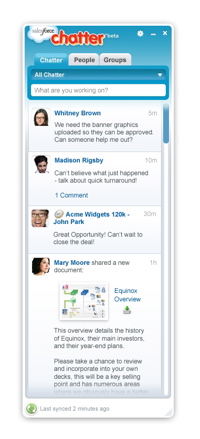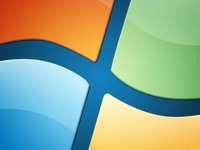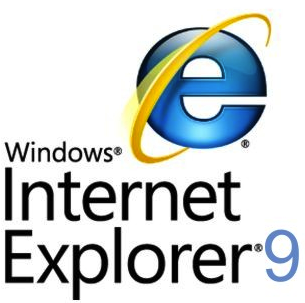
Android sees 5x growth in enterprise, says survey
Market research company ChangeWave today published the results of its latest survey, which focuses on corporate smartphone spending, and the market segment that is the stronghold for Research in Motion's BlackBerry platform.
According to ChangeWave, BlackBerry continues to dominate the enterprise sector, but it dropped three percentage points from the team's last survey in May. The interesting discovery is that Google's Android operating system has jumped up another six percentage points since May, meaning it has grown five-fold since last November.

Microsoft Security Essentials free anti-malware coming to small businesses, too
Microsoft on Wednesday announced it will be making its free Security Essentials product available to small business in a 10-pack of licenses in October. The anti-malware product has thus far been aimed at the consumer market, and has garnered quite a bit of recognition as a high quality free software antivirus.
This new availability is thanks to a change in the software's end user licensing agreement (EULA), which now lets business customers put Security Essentials on individually managed PCs.

Betanews Giveaway: Logitech Harmony One Advanced Universal Remote
Google TV is launching to the public in just a short few weeks after being in development for more than a year. The platform will let users stream video content from Netflix, Amazon Video On Demand, and YouTube, browse the Web with Chrome, search for and organize content, and eventually install Android apps.
The first piece of Google TV-compatible hardware expected to hit the market is Logitech's Revue set top box, which adds a layer of home automation control with its "Harmony Link" Infrared (IR) Blaster capabilities.

Chatter, the enterprise sector's own Facebook, gets significant update
Enterprise customer relationship management (CRM) software leader Salesforce today unveiled a revamped version of its still-new, social media-inspired collaboration tool Chatter, which is expected to come to customers in October.
Salesforce is calling the new version "Chatter 2," and it adds more than a dozen new features to the available version of the product, which is essentially Facebook for enterprise. Even though it has only been available since June, Chatter has already been picked up by more than 20,000 companies, including Dell, Hitachi, Misys and Softbank. So this update is no small affair.

Netflix streaming finally comes to Canada
Netflix Instant streaming, the increasingly popular and ubiquitous subscription movie on demand service has officially launched in Canada after more than three years of availability in the United States. This is the first time the service has been made available outside of the U.S.
Fortunately for Canadian Netflix subscribers, there are already a wealth of devices which will let them watch videos on their TV: iPad, iPhone, iPod Touch, Sony PlayStation3, Nintendo Wii, Samsung and Toshiba connected Blu-ray players, and TiVo.

Microsoft rolls out public preview of Windows Small Business Server 7
Microsoft Tuesday made the first public preview version of Windows Small Business Server 7 (SBS7) available for download. This version of Microsoft's integrated IT suite for small businesses is built upon Windows Server 2008 R2 and includes Exchange Server 2010 SP1, SharePoint Foundation 2010, and Windows Software Update services.
Along with Windows Home Server known as "Vail," which was launched in Beta in mid-August, and the Small Business Server product code named "Aurora," SBS7 is a part of the pack of soon-to-be released, low-cost, low-complexity IT solutions for small enterprises.

Firefox 4 beta loses to IE9 beta in browser speed, efficiency tests
The latest wave of upcoming changes to the world's two most used Web browsers, jointly responsible for easily three-fourths of the Internet's HTTP requests, has nearly everyone in the business rethinking the meaning of "quality" as it pertains to browser architecture. While their arguments start with the usual reminders that folks just want to see their pages load faster, before too long, they wander into dissertations about the methods architects use to achieve the appearance of loading faster. . . especially when they actually don't.
In preparing to test Microsoft's first Internet Explorer 9 public beta, released last week, and Mozilla's public Firefox 4 beta, released late last month, the advice I received most often fell into two departments: 1) Pay more attention to graphics rendering, since new browsers will be spending more time processing Web apps than just displaying pages; 2) start paying attention to how browsers utilize memory and CPU cycles. Since my smarter readers are typically right, that's what I've done in crafting my all-new browser performance test suite.

Study: Windows 7 leading to higher customer PC satisfaction
Consumers are responding positively to Microsoft's Windows 7 operating system, and thus their satisfaction of their PCs has also increased, the most recent edition of the American Customer Satisfaction Index. The effect is being compared to the "halo effect" of Apple's iPod music player, which was thought to have engendered positive feelings about the Mac computer.
Dell's satisfaction score was up three points over last year to a 77, while HP, Acer, and a general "all others" category was up four points also to a 77. The only manufacturer not to see gains was Compaq, which remained at a 74 out of a possible 100. Apple remained on top with a score of 86, which was two points higher than last year. The Cupertino company has led the survey every year since 2004.

Betanews readers offer mixed reactions to IE9
Last week I asked: "Can IE9 bring back Microsoft's glory days?" You answered. As I write, there are 65 comments to the post, and I received dozens of e-mail responses about Internet Explorer 9 beta. Also, as expressed in the more than 160 comments to Ed Oswald's post "IE9 will leave a significant portion of Windows users behind," many of you are miffed the browser doesn't support XP.
In this post, I share your reactions to IE9, the majority from e-mails. This morning, Matt Buono expressed his excitement about the browser, which he described as "fantastic." Dan Locker, an alliance manager with a West Coast Microsoft partner, called IE9 a "huge disappointment." He asked not to be identified because of his work with Microsoft; the name here is pseudonym. Jonah Takalua asserts: "IE9 is quick to start up and runs great so far. I liken it to the browser version of Win 7 with IE8 being Vista."

Microscopic stop-motion film shot entirely with Nokia N8
Though the still-to-be-released Nokia N8 smartphone is modestly specced in the processor department, it is highly overspecced in the camera department. With a 12 Megapixel image sensor, the N8 will join the Sony Ericsson Satio and the Samsung Pixon12 at the highest end of camera phone technology.
Nokia on Tuesday announced that the N8 has been delayed "to ensure a greater user experience," but its powerful camera has yielded some impressive eye candy to whet the appetites of customers in advance of its expected October arrival.

First LTE network, first LTE phone launch in Las Vegas
Samsung Mobile on Tuesday launched the very first LTE phone in the United States, the Samsung Craft. The device celebrates the launch of the very first commercial 4G LTE network with MetroPCS in Las Vegas, Nevada.
In addition to the LTE chips inside, the Craft also has a 1x EV-DO CDMA radio, Wi-Fi/GPS/Bluetooth, a 3.3" AMOLED touchscreen and QWERTY keyboard, a 3.2 Megapixel camera, and a 2GB microSD card with support for cards up to 32GB in size. Similar to the way the Galaxy S Vibrant was pre-loaded with Avatar, the Craft is pre-loaded with a full-length copy of Star Trek on its SD card.

Security hole on Twitter.com exploited, links forced on mouseover
Though Twitter recently launched a newly redesigned site, users of the popular microblog are advised to use only third-party Twitter clients Tuesday morning to avoid a newly-exploited security hole.
The hole comes from the onMouseOver JavaScript code, which lets websites launch in your browser simply by mousing over a link in your Twitter feed. So far, the flaw has been used to redirect users to third-party sites, to pop up unwanted messages, and to have messages retweet themselves.

Microsoft expands Zune's international presence before Windows Phone 7
Microsoft Monday announced that it will be launching its "Multi-screen" Zune services in new international markets this fall. The expansion will bring the free Zune software version 4.7, Zune Marketplace with non-DRM MP3 and video downloads and movie rentals, and the Zune Pass subscription service to a total of 20 countries.
Only the UK and France will be open to all of these features, and the rest will vary between countries.

Google introduces two-step authentication for Apps product
Google on Monday announced that it would offer a two-step security option to certain customers of its Google Apps product, aiming to offer its customers a low cost option for higher security. The new authentication system would combine the traditional password with a verification code sent to the user's mobile phone.
Initially the offering would be available to English users of its Premier, Education and Government editions, with Standard edition customers getting the feature in the coming months. Google wants to ensure they can scale the feature reliability before expanding it to the "hundreds of millions" using the free version.

Bottom Line: There are already 70 million+ "Facebook Phone" users
This weekend, TechCrunch reported that popular social networking site Facebook was secretly creating its own branded mobile phone, and that executives Joe Hewitt and Matthew Papakipos were working on the project under the radar of most of Facebook's staff.
The report was quickly followed by a statement from Facebook denying the allegations:



